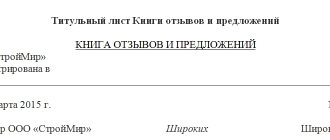Is it possible to turn off the sewerage system for non-payment?
We have to pay for everything in our lives, and housing and communal services are no exception. Seven years ago, legislators issued [1]Resolution No. 354 on the implementation of rules that control the parties of consumers and organizations providing services.
According to the regulations of [2] Housing Code and [3] Civil Code, suppliers can recover debt for utilities through the court. But this technique does not always work: despite the verdict of the court and visits to the property by bailiffs, certain defaulters accumulate sums of several thousand rubles.
It must be said that it is not possible to shut off water drainage for a single fact of non-payment of utilities. The period of non-payment must be at least three months.
In order for the management company to turn off the sewer system, it must fulfill a number of requirements established by the Housing Law of our country:
- The debtor must be notified of the resulting debt in writing.
- The message must indicate the number of the debt, indicate the time during which payment was not made, and also set a period (at least 20 days) for repayment.
- The letter is delivered only to the defaulter against signature, or it is sent by registered mail with acknowledgment of delivery.
- In addition, certain management companies print out red receipts, post a list of debtors in entrances and houses, and conduct promotions to pay for housing and communal services without fines.
The service may be limited for a certain time. However, it is necessary to notify the tenant of the apartment three days in advance.
The Supreme Court explained the procedure for suspending the provision of utility services to defaulters
On March 5, the Supreme Court of the Russian Federation issued Resolution No. 47-AD19-2 in the case of bringing to administrative responsibility the head of a management company who ordered the installation of a plug in the sewer system of a debtor for utilities.
In July 2021, LLC “Manager” sent a notice to the Orenburg resident about the presence of overdue debt for the maintenance of residential premises in the amount of about 50 thousand rubles. In October of the same year, the debtor's provision of public sewerage services was suspended by installing a plug in the apartment sewage system.
This fact forced the owner of the apartment to contact the prosecutor's office of the Orenburg region. A case of administrative offense was initiated against the head of the Criminal Code in the person of Sergei Bezrukov. Subsequently, the magistrate fined the general director of the company 50 thousand rubles. for committing an administrative offense under Part 2 of Art. 14.1.3 Code of Administrative Offences. The judge's decision survived appeal and cassation.
When making decisions, the courts were guided by the fact that the offender’s guilt was fully proven by the case materials, according to which the sewerage utility service was suspended by the Criminal Code without reason. At the same time, the courts imposed an administrative penalty in the minimum amount provided for by the above article of the Code of Administrative Offenses of the Russian Federation.
The head of the Criminal Code filed a cassation appeal to the Supreme Court of the Russian Federation, pointing out the illegal nature of the court decisions made against him, but the judge of the highest court did not find grounds to satisfy it.
With reference to sub. “a” clause 117 of the Rules for the provision of utility services to owners and users of premises in apartment buildings and residential buildings (approved by Decree of the Government of the Russian Federation of May 6, 2011 No. 354) The Supreme Court explained that the contractor limits or suspends the provision of utility services, having previously notified this consumer when the latter does not pay in full.
In turn, underpayment of a service by a consumer is understood to mean that he has a debt to pay for 1 utility service, exceeding the sum of two monthly amounts of its payment, calculated on the basis of the standard for its consumption, regardless of the presence/absence of an individual or common (apartment) metering device and the tariff for the corresponding type of communal resource. In this case, there is no agreement on debt repayment between the executor and the consumer-debtor or the latter does not comply with its terms.
The above Rules detail the procedure for introducing restrictive measures against the debtor. Thus, the executor warns the debtor that in case of failure to repay the debt within 20 days from the date of his notification, the utility service may first be limited and then suspended or immediately suspended in the absence of the technical possibility of limiting it. The introduction of restrictive measures against the debtor is possible only if he fails to repay the debt within the period established in the warning.
As the Supreme Court explained, from the case materials it follows that the Criminal Code did not prove the fact of sending the owner of the apartment a notice of debt for the sewerage utility service, since the consumer’s debt for each type of utility service is calculated separately, and a specific (incomplete) payment is subject to limitation or suspension in the event of incomplete payment by the consumer. paid) utility service. At the same time, the Court noted that in the notice sent to the debtor, the company did not reflect the presence or absence of the technical possibility of introducing restrictions on public services. There is no information in the case materials that the volume of supply of a utility resource was temporarily reduced to the consumer. In this regard, the Supreme Court pointed out the inadmissibility of suspending a utility service without going through the stage of its limitation, if there is a technical possibility for the latter.
With reference to the Resolution of the Plenum of the Armed Forces of the Russian Federation dated June 27, 2021 No. 22, the Court explained that the mere existence of a debt to pay for a utility service cannot serve as an unconditional basis for its suspension or restriction, which must be proportionate to the violation committed by the tenant (owner) , do not go beyond the limits of actions necessary to suppress it, do not violate the rights and legitimate interests of others and do not create a threat to the life and health of others. These restrictive measures must not violate the established requirements for the suitability of residential premises for permanent residence of citizens.
Taking into account the above, the Court concluded that the management of the apartment building was carried out in violation of licensing requirements, and the controversial utility service was suspended illegally. Due to the actions of the Criminal Code, the sanitary and hygienic living conditions in the apartment and the established requirements for the suitability of residential premises for permanent residence of citizens were violated. Thus, the Supreme Court upheld the judicial acts of the lower authorities.
Moscow AP lawyer Alina Emelyanova noted the relevance of the Supreme Court ruling for judicial practice in disputes related to the provision of housing and communal services. The expert suggested that the document will contribute to the formation of uniform judicial practice and will reduce the number of violations of the law by management companies.
In turn, the project manager of the Bureau of Chartered Attorneys “Freitak and Sons” Viktor Spesivov did not agree with the conclusions of the Court, the ruling of which “makes a depressing impression.”
“The Criminal Code already has few practical levers to combat persistent defaulters of utility services. Judicial practice quite often recognizes the suspension of public services as illegal if procedural aspects are not observed. And in this part (the management company’s failure to indicate the specific amount of the defaulter’s debt for sewerage), the resolution of the RF Armed Forces confirmed the current position,” noted Viktor Spesivov. “Courts often resort to the concept of proportionality between the suspension of public services and the existing debt (although this approach of the courts is overly broad and unfounded).”
The expert noted that, based on the decision of the Supreme Court, any suspension of public services, in fact, violates the established requirements for the suitability of residential premises for permanent residence of citizens. “Consequently, now judicial practice may take the path of closing the last loopholes for the Criminal Code in order to suspend utility services to persistent defaulters, which could lead to aggravation of the already close to catastrophic situation in the housing and communal services sector. And conscientious payers will suffer because of this, who will not receive quality services due to malicious defaulters and the lack of real mechanisms to hold them accountable thanks to such judicial practice,” concluded Viktor Spesivov.
What measures can the management company take?
After the explanatory and preventive procedure carried out did not produce results, the debtor does not pay the debt, there is no technical possibility to introduce a restriction, then the company employees establish a blockade on the water sewer system.
The management company enters into an agreement with a commercial company to install a plug that will shut off the water supply from the problem apartment. The blocking rule is simple: water flows into the room as before, but difficulties arise with draining. This also applies to flushing the bathroom, toilet, and the operation of household appliances.
Today, this measure of influence is used quite often. This is due to the fact that such work is carried out without the participation of judicial authorities, which makes it possible to quickly and significantly reduce the number of defaulters, because of this, this technique is quite effective.
It must be remembered that these measures to disconnect housing and communal services are not possible when the law and the rights of residents who regularly pay receipts are violated, the conditions for the suitability of the apartment for human habitation are met, and no damage is caused to the property of the house. First of all, you need to find out whether installing a plug is legal.
If a person has a significant debt for utility bills, then you need to know that the supplier has very effective methods of persuading him to pay his debt. As a result, if a citizen’s name appears on the list of debtors, then the sewerage contract is terminated and in order not to lose the opportunity to use sewerage, the citizen needs to repay the debt within a short time.
On the legality of shutting off sewerage
Of course, blocking a sewer pipe is one of the worst measures. After all, then a person cannot fully use the water supply, and living conditions in general worsen. That is why such an action motivates citizens to pay off their debt. However, there are those who are interested in whether shutting off the sewerage system is legal.
On the one hand, due to the appearance of a stub, the apartment ceases to be suitable for living. Because of this, the usable area of the entire house becomes smaller, and this can only be done on the basis of a decision made at a general meeting. Moreover, to limit the flow, it is necessary to seal, but this is impossible to do with sewerage. Therefore, the debtors conclude that this measure will be considered illegal.
However, it is worth considering the position of the court in this matter, because the decision is not always made in favor of citizens. Firstly, there is no evidence that turning off the sewerage leads to a decrease in the usable area of a high-rise building; this is, in principle, impossible to confirm. Secondly, the rule on the general meeting is ignored, since there is no interference with the common property. Thirdly, a plug in the sewer is considered a seal.
As a result, the court decides that this measure is completely legal if the other rules are met. We are talking directly about the fact that only two months after the debt appears, you can send demands to pay the accumulated amount. At the same time, you need to warn that if you do not act, the person’s utilities will be turned off. Another month after sending the request, you must notify that in 20 days the sewerage system will be closed for debts
It is important to indicate the exact date and time when specialists will be sent
In the event that the debtor does not repay his debts and does not ask for a deferment, his apartment is left without a sewer pipe. Of course, this creates serious difficulties on the farm, but filing a complaint in court is useless. If everything was done in accordance with the law, then the person can only deal with debts.
How to install the plug
The procedure for installing a blockade in a home looks like this:
- determine where the central drainage riser is located in the house;
- for blocking, a specific plug is used, corresponding to the diameter of the drainage system;
- carefully insert the plug into the pipe and move it to the problem apartment;
- a special outlet is installed, which also closes the problem room, but not the central riser.
The end result is a block that does not affect the rest of the rooms in the house, except for the one that is considered a liability.
Arbitrage practice
In some cases, defaulters or public housing estates try to challenge in court the restriction or suspension of water drainage for non-payment of utilities . Let's consider cases when the court satisfies their claims or rejects them.
In the Resolution of the Thirteenth Arbitration Court of Appeal dated January 20, 2015 in case No. A56-19200/2014, the judge ruled in favor of the State Housing Property Inspectorate, which, after an unscheduled inspection, issued an order to the housing cooperative. The GZHI order was based on the fact that the housing cooperative installed additional equipment that was not provided for in the project, the Rules and Standards for Housing Maintenance, the Housing Code of the Russian Federation and clause 1.6 of the Rules and Standards for the Technical Operation of the Housing Stock (Decree of the State Construction Committee No. 170 of September 27, 2003).
The housing cooperative tried to challenge this order of the Housing Housing Inspectorate in court, since many apartment building residents did not pay for utilities for a long time. As a result, the cooperative had to install “plugs” on the debtors’ individual risers and cut off individual apartments from the sewerage system. But the court refused to satisfy the housing cooperative’s demands, basing its decision on the fact that:
- the cooperative had to separately calculate the debt for each type of corporate capital and, before the restriction, notify the debtors, demanding to repay the debt (clause 118 of the RF PP No. 354);
- engineering systems that are part of the common property of the owners of premises in apartment buildings must comply with sanitary and epidemiological safety requirements (clause 9.2 of SanPiN 2.1.2.2645-10).
Thus, the deliberate suspension of water drainage due to the work carried out by housing cooperatives to install “plugs” on individual risers makes the apartment building unsuitable for habitation and does not comply with sanitary and epidemiological safety standards.
However, there is a completely different court decision in a case with a similar plot. Thus, in the Resolution of the Thirteenth Arbitration Court of Appeal dated February 5, 2015 in case No. A56-27564/2014, the judge ruled in favor of the housing cooperative. The court considered that upon prior notification to the debtor of the introduction of special measures in relation to it, the cooperative has the right to limit or suspend water disposal.
The court found, based on the conclusion of the forensic examination center, that the actions of the housing cooperative to install “plugs” to limit water drainage to the engineering systems of the apartment building do not change the parameters of the residential building, do not lead to damage to the debtor’s property and do not violate sanitary and epidemiological safety requirements . Thus, living conditions remained suitable, and the remaining owners of the premises in the house were not affected by the actions of the cooperative.
It is important to note here that the installation of “plugs” to limit water drainage can only be done in those sections of utility lines that do not belong to the common property of the owners of premises in the apartment building. Also, the installation of “plugs” should not lead to damage to the debtor’s personal property.
The watchful eye of GZHI
93881
What should you do if your sewer system is blocked due to debt?
Any supplier company will meet the citizen halfway in repaying the liability before taking extreme measures. There is an option to make payments in installments, in installments, in several stages, or to draw up a restructuring agreement. You just need to understand for yourself that you will still have to pay; the legislation in this matter is entirely on the side of the utility companies.
Not all utilities are allowed to be disconnected by law.
Debtors should be aware that the legislation of the Russian Federation does not allow the disconnection of utilities for debts on cold water supply and heating of residential premises.
Also, the courts do not recognize the legality of disconnecting services that could lead to a violation of the rights and interests of other persons. Where are the most expensive new buildings in the Moscow region?
If it is not technically possible to disconnect one apartment, then you cannot exercise the right to disconnect utilities. Even if you have a large debt.
How to remove the block?
You just need to close the debt, conclude a restructuring agreement, and pay it step by step. Then all receipts will be paid, but the block will not be installed.
The plug can be removed using a variety of mechanical tools. However, do not forget that such actions can lead to flooding of neighbors and your own apartment, which will become another additional problem to the existing ones. It would be good if these actions fall under an article of administrative violation, but there are situations that fall under an article of the Criminal Code.
No one will allow a person to damage common property and utilities. This is already a serious offense for which you will have to bear criminal liability.
The legislation does not oblige a person to pay for the installation of the block and unblocking the drainage system. If a citizen receives an invoice for such work, he can challenge it in court.
What to do if the drainage system is blocked
Any management company is ready to accommodate a citizen before suspending water supply if he intends to pay off the debt. For example, the parties may agree to pay the accumulated amount in stages by concluding a restructuring agreement.
If for some reason it was not possible to reach an agreement and the service has already been suspended, you need to know what to do if the sewer system is blocked for debt.
You should not remove the plug yourself using technical tools, as this can lead to flooding of your neighbors.
In addition, such actions can be qualified as an administrative offense, and sometimes even fall under the law.
The only correct course of action in this case would be to pay off the debt.
Find out in more detail how debt restructuring for housing and communal services occurs.
It is prohibited to disable CG if there is an agreement on installment payment of debt
If the circumstances are such that there is no money to pay the debt, the debt is growing, then there is no need to remain silent and hide. The problem can be resolved peacefully. To do this, the owner of the apartment contacts the management company and writes an application with a request for an installment plan due to temporary financial difficulties.
If the management company does not want to provide an installment plan, then you need to go to court with a request for an installment plan for the execution of the decision to collect the debt. In this case, the court must be presented with strong evidence of a difficult life situation.
If the management company violates the terms of the agreement reached, then the owner again faces the issue of sudden shutdown of the utility service. The only way out is litigation.
Controversial issues
Despite the legality of limiting or suspending water disposal, subject to the required procedure for notifying the debtor, many controversial issues remain. For example, if the cessation of operation of the sewerage system makes an apartment building unsuitable for habitation and does not comply with sanitary and epidemiological safety standards, then the actions of the management company to limit or suspend water disposal may be considered illegal. If the court establishes the illegality of these actions of the Criminal Code, then the victims may demand compensation for moral damage. Also unclear is the question of compensation for the management company’s expenses for installing and dismantling “plugs”. The law does not stipulate that these costs must be borne by the debtor. And it can be logically assumed that if the consumer does not pay for utilities, then, naturally, he will not pay the costs of the management company for the installation and subsequent dismantling of the “plugs”. And to compensate these costs at the expense of law-abiding and respectable property owners is, at the very least, unfair. To avoid all these controversial issues, we recommend that you present claims to debtors in court. This will save you from possible risks and when the State Housing Property Inspectorate or debtors go to court, it will prove that you are right. In addition, this procedure will help to respect the rights and legitimate interests of the remaining owners of premises in the house.
Follow the law and the law will be on your side!
Source: RosKvartal® - Internet service No. 1 for management organizations Read more ➤
Debts due to the management company
They do not have the right to disconnect services if the debt is a consequence of the fault of the management company of the apartment building. It’s a fact, but situations with incorrect transfer of payments for CG are not uncommon. The reasons are different. This is a transfer of residents to another management company, a direct agreement with a service provider, or a change in payment details.
In these cases, even the court will not help to repay the debt! Be careful when lending money
The courts adhere to a single position in such a situation - the search for funds that the owner transferred for the CG is the problem of the recipient company. Therefore, such debts cannot be grounds for disconnecting utility services.








